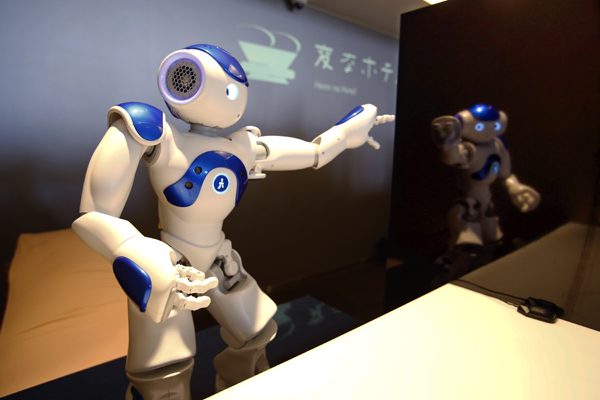SINGAPORE, 24 May 2019: Amadeus and InterContinental Hotels Group’s latest research into the future the hospitality industry suggests robots are a gimmick and traditional room types are history.
Based on feedback from 7,500 travellers worldwide, with input from travel and hospitality industry experts, the report identified trends that are set to shape the industry.
The report claims the hospitality industry is ripe for disruption due to “siloed legacy systems, data fragmentation, rising consumer expectations, and high costs associated with current booking systems.”

It means that the hospitality industry has been slow to transform digitally.
Consolidations of major brands, for example, Marriott and Starwood, are disrupting the sector as merging allows brands to gain bargaining power and drive more direct bookings the study suggests.
There has been an increase in the independent market and alternative accommodation is growing steadily.
The study recommends that to keep up with these changes, the hotel industry needs to adopt seamless, more guest-centric experiences, and technology will play a major role in this change.
The Beginning of the End for Room Types
Traditional room types have been around forever – single, double, twin, suite or family room. It’s a tried and tested format, beloved by hotels and understood by guests the world over. However, the research suggests that this now the “beginning of the end for room types”. It will see guests able to swap desks for yoga mats, stream their own content through the in-room TV, or ask for that third-floor room with the view they’ve always loved.
“The rise of personalization is a major trend faced by the entire travel industry. Consumers expect more personalized experiences from the moment they begin searching for bookings, to checking out of a hotel room. However, a challenge for personalization in the hotel industry is siloed legacy systems, built on a closed architecture. With a majority of data being fragmented, the industry struggles with guest recognition and personalization,” said Amadeus EVP corporate development and marketing, hospitality, Ahmed Youssef.
The Rise of Tech-Augmented Hospitality
Hospitality providers will need to serve guests in a significantly more connected way, striking the right balance between automated solutions and human interaction. The study details how technology will be used to empower staff to deliver unprecedented levels of service at scale. It suggests that technology needs to support human interaction, not replace it, as the majority of guests (67%) say they prefer to interact with a person for the emotional interaction.
Robots will remain a gimmick according to Banyan Tree VP global sales. Kenneth Law.
“While robot butlers may be the best way to provide room service, they are no more than a gimmick. Using a luggage robot as an example, if you think about its application within a resort, from a terrain perspective it would be virtually impossible for the robot to follow its human leader.”
Achieving Cult Status at Scale
The kind of status usually reserved for luxury or boutique hotels or consumer brands will be available for all if they can build a loyal following of fans, who feel an emotional connection. In the competition for guest loyalty, hospitality providers need to identify how to offer value through delivering memorable, shareable experiences. To do this, hotels must understand individual guest needs on each trip, and offer a host of unique and unexpected surprises. In fact, 70% of global travellers would like hotels to provide more advice and tips about unique things to do, with only 20% saying they currently get ideas from the hotel.






